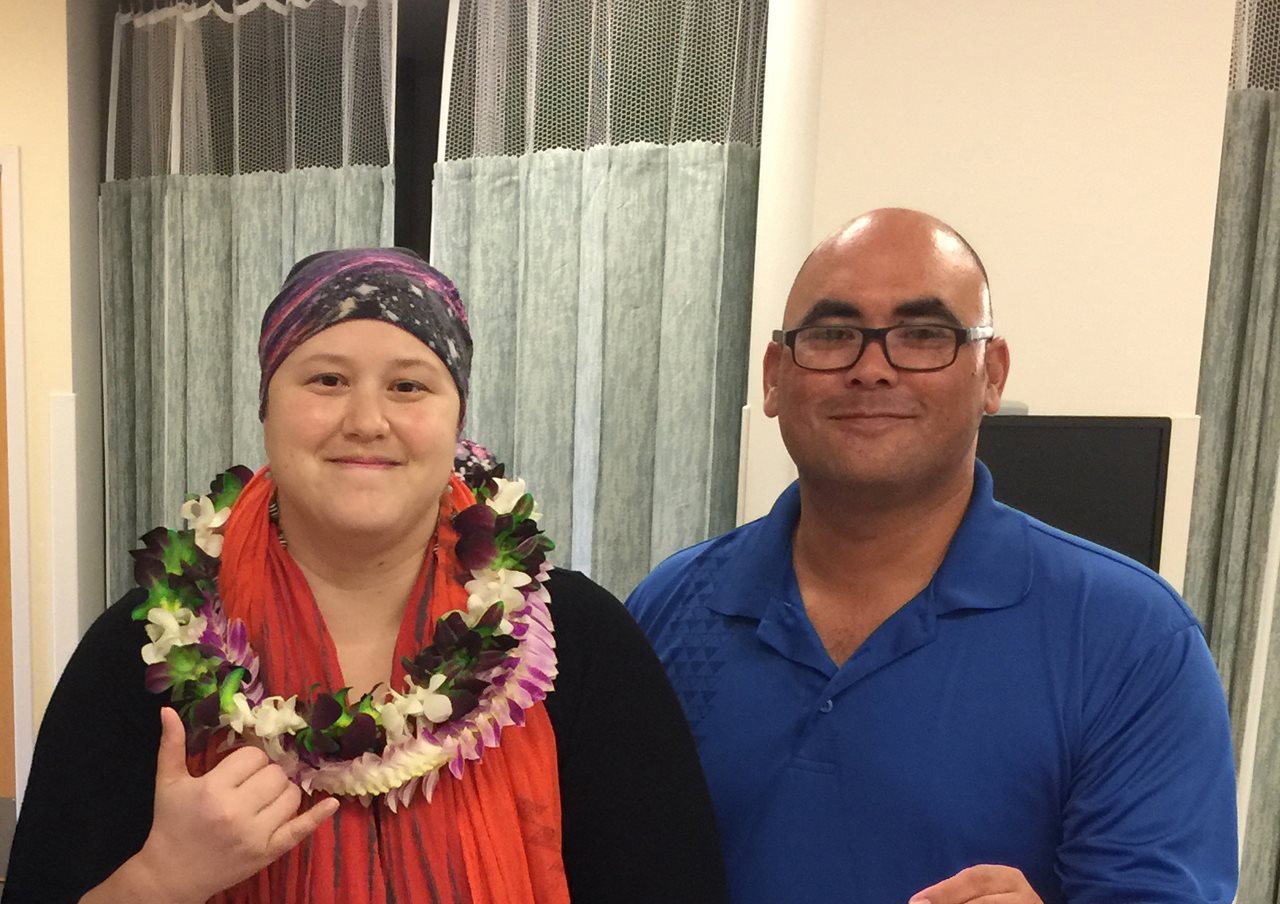(BPT) - Facing a health crisis was the furthest thing from Melissa's mind when she discovered her breast cancer. She was only 38 years old and a busy grad student living in Hawaii. 'I was going for my masters in planetary geology, studying the surfaces of the moon and asteroids,' Melissa said.
Melissa's life took a drastic turn when she noticed a change in her right breast. 'It looked funny in the mirror,' she recalled. She sought the opinion of the university nurse who chalked up the changes to hormonal fluctuations. When the spot was still visible a month later, Melissa decided to take action.
Understanding Metastatic Breast Cancer (MBC)
'I got a mammogram. I got an ultrasound. I got a biopsy and blood drawn all in one day. Seven days later, they told me I had breast cancer,' she said. 'From there, it was just a whirlwind of treatments and scans and doctor appointments.'
Melissa was diagnosed with stage 3 invasive lobular carcinoma, which the National Cancer Institute defines as a type of breast cancer that starts in the milk glands and then spreads to other parts of the breasts.1 Melissa was shocked. She could not believe she had breast cancer at such a young age and with no family history of the disease.
After undergoing treatment, a few short years later, Melissa learned the cancer had spread even further. 'I had a pain in my left shoulder, and I was so tired because I couldn't sleep. I started to notice changes in my vision and I called my doctor. She scheduled me for an MRI, just in case. And that's when I found out that the cancer had spread to my bones," she said.
Melissa learned she had metastatic breast cancer (MBC), also known as stage IV breast cancer. Breast cancer can often spread to the bones, lungs, liver and brain, according to the National Cancer Institute. While there is no known cure, MBC can be treated to help stop or slow the growth of the disease.2
Being an Active Member of the Treatment Team
Throughout her diagnosis and treatment journey, Melissa wanted to learn as much as possible. As a grad student, researching to learn more about her disease came naturally. 'I wanted to find all the information that I could,' she said.
She encourages those navigating a cancer diagnosis to ask questions at appointments and to closely partner with their care team on treatment decisions. 'You need to be an advocate for yourself,' she said. For Melissa, that meant meeting her pathologist in order to review her tumor slides together and ask questions about the biology of her disease.
Beyond gaining knowledge, Melissa says it's also important to be honest with your care team about how you're feeling; cancer affects each individual differently, so explaining your symptoms and side effects will help you get the appropriate care.
An MBC diagnosis can be challenging, but information and support is available. LifeBeyondPink.com provides resources for those living with MBC and their loved ones, so they can navigate common questions such as determining a treatment plan, understanding biomarker testing and more.

Community as a Source of Support
Life can change quickly with MBC, and your physical health isn't the only thing that matters.
Melissa experienced a shift in her mental health as well. 'It was devastating,' she said. 'I couldn't retain information. I was sleeping a lot. I wasn't practicing self-care or enjoying the things that I used to enjoy.'
She began to feel cycles of anxiety and started to see a therapist. She also joined a support group with other cancer patients where she experienced the power of community firsthand. This helped her mental health and made her feel less alone on her cancer journey.
'My support group equipped me with an emotional toolbox,' she explained. 'Before, it was like all I had was a shovel. You can build a house with a shovel, but it'll be a lot easier with other tools, too. Now I feel so much more equipped, emotionally speaking, with more resources and concepts that I can use.'
She also found critical support from her personal connections, including friends and family, as well as her church. 'My cage of fear was lifted through my church community,' she recalled. She started practicing lauhala, the traditional Hawaiian art of weaving, and adopted a dog named Momi. 'She is such a boon to my mental health,' Melissa said.
Today, Melissa is part of an organization that connects young women living with breast cancer in Hawaii. Sharing their stories and experiences helps all of them feel less isolated. For women who have just learned they have metastatic breast cancer, Melissa is a trusted source of support and advice.
'If you or a loved one has metastatic breast cancer, having support is invaluable,' she said.
No one living with MBC should ever feel alone. To hear from others living with MBC and how they continue to live Beyond Pink, visit LifeBeyondPink.com.
References:
- National Cancer Institute. Invasive Lobular Carcinoma Definition. Accessed November 11, 2023. https://www.cancer.gov/publications/dictionaries/cancer-terms/def/invasive-lobular-carcinoma
- National Cancer Institute. Metastatic Cancer: When Cancer Spreads. Accessed November 11, 2023. https://www.cancer.gov/types/metastatic-cancer




